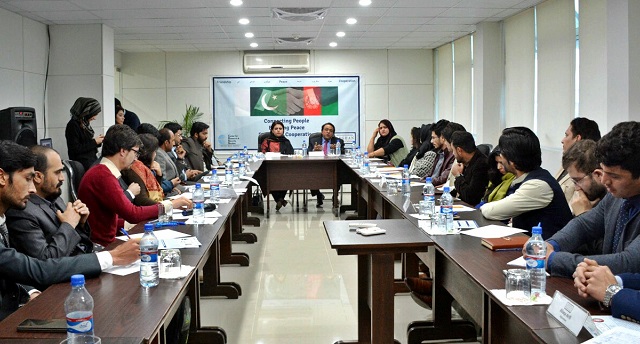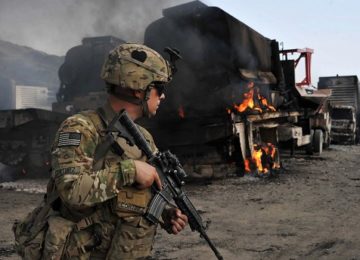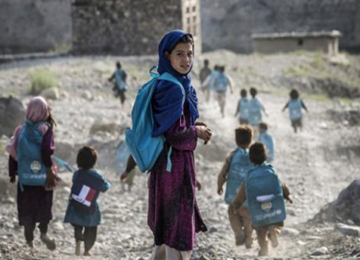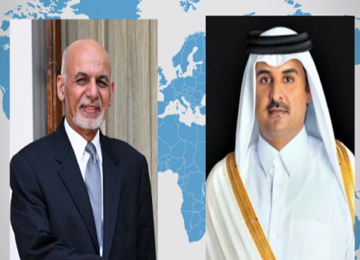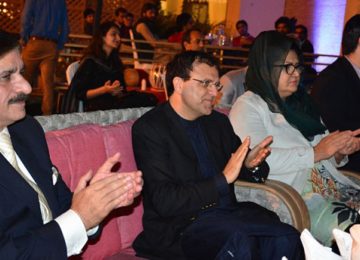The Center for Research and Security Studies (CRSS) conducted its sixth Pak-Afghan Youth Dialogue under its Afghan Studies Center initiative on Friday, November 24, 2017, as part of its ongoing series of monthly dialogues aimed at enhancing people to people contact between the youth of Pakistan and Afghanistan. The theme of the dialogue focused on ‘Addressing the Issue of Extremism in Pakistan and Afghanistan’ which was attended by 26 participants, comprising young Afghan and Pakistani students and activists belonging to Kabul, Islamabad, Ghazni, FATA, Azad Jammu and Kashmir and Gujranwala, in addition to other areas.
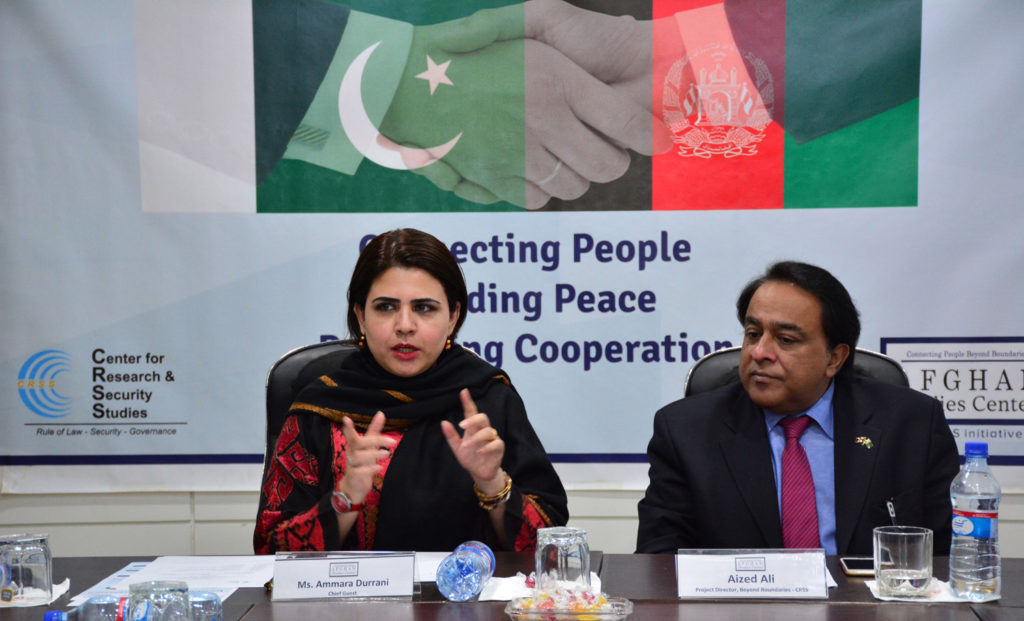
Ms. Ammara Durrani, an independent polymath professional and management consultant with 14 years of leadership experience working with international, regional and national organizations on a range of strategic programmatic initiatives in areas of conflict, peacebuilding & counter-violent extremism, was the chief guest, while Mr. Aized Ali, Project Director at CRSS, moderated the dialogue. Ms. Durrani, in her presentation, extended a warm welcome to all the young Afghan and Pakistani participants present, stating she felt excited to be in the same room with Afghan and Pakistani youngsters sitting side by side and showing their goodwill gesture for a positive future. She expressed her grief over the deterioration of the once strong connection of affiliation the two nations held, hoping optimistically for the improvement of their bilateral relations soon in the coming times.
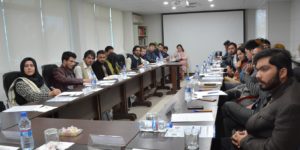
Speaking on the theme, Ms. Durrani, categorized the different shades of extremism existing in the present world, delineating that some is religiously motivated, some politically while some even economically, in addition to other contributing factors. She said it was important firstly that the Pakistani and Afghan youth make clear these distinctions between the different types and factors behind each type of extremism to be able to grasp the root cause of growing extremism in the South Asian region and then work towards curbing its various forms from proliferating and intensifying. She also urged the youngsters not to necessarily repeat the state narratives as their narratives but to build their own according to their understanding, discretion and research as responsible citizens. She said this was the only constructive way forward for the youth of both countries to achieve a peaceful and prosperous future in both countries. In this process, she affirmed, it was also the duty of the elders to be truthful to the younger generation so they are not misled.
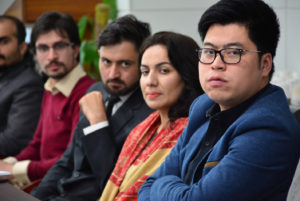
To gauge the understanding of the youth present, Ms. Durrani put forth some thought-provoking questions. These included firstly whether the issue of extremism is about clash of ideologies or whether it is nationalistic in nature? Furthermore, since the global war on terrorism was waged on Al-Qaeda and its ultra-extremist ideology, what has replaced Al-Qaeda today and why is extremism still on the rise? She also asked the participants to share their views on what compels the youth towards extremist narratives in the contemporary world.
Some Afghan participants were of the view that extremism has nothing to do with the religion of Islam and that it rather appears to be politically motivated since decades. What we need to understand is that the youth need to disengage with interest-based leaders and politicians and only engage for positivity, a participant said. Pakistan and Afghanistan have several bilateral issues to resolve, but there is always a way out and the youth can act as a launching pad for that, he said.
Several Pakistani participants also highlighted the issue of extremism creeping in educational institutes across the country, pointing out that the concern is not limited to addressing the issue of extremism through spreading awareness and educating the masses but the way education is imparted in institutions. Hence, the responsibility also lies with teachers to inculcate peaceful narratives to students so youngsters are not incited towards extremism and violence. Other participants pointed towards the role of the media in shaping perceptions of the general public by the way the media portrays certain groups or countries or plays a role in fueling hatred and hostility between people, inciting them towards intolerance and violence in the process.
Frank Sun, a Chinese researcher also present in the dialogue, shared his views about the theme of extremism and how China has dealt with it. He said that conflicts within a country or with neighboring states feed extremist ideologies. He recalled that when China emerged as a power in the region, the first problem it faced was in dealing with its neighbors most of which were in US bloc of capitalism in the Cold War period. What China did to deal with the situation was to engage with neighboring countries on the basis of common interests and set aside their disputed matters for some time to build on trust first, he said. Consequently, they converged on more common interests, achieved harmony in the process, and, as a result, extremism was able to be controlled to an extent for the greater good.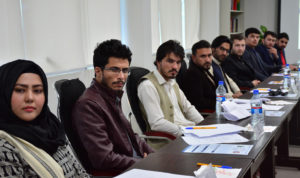
At the end of the discussion, the participants commended the efforts of CRSS in bringing together the youth of both countries through such constructive dialogues that instill critical thinking in them for the good of both countries and expressed that such conferences and platforms would help young Afghans and Pakistanis to reconstruct their perspectives regarding issues such as ‘extremism’ and consequently play a positive role in their respective circles of influence. Mr. Aized Ali, CRSS Project Director Beyond Boundaries, also apprised the participants on CRSS’ efforts in contributing to the improvement of relations between the two neighbors under its project Beyond Boundaries which has recently entered its third phase.
To conclude the dialogue, Ms. Durrani stated that it was time Pakistan and Afghanistan focused on the many common grounds for cooperation that they share, and get united in countering the common enemy of terrorism as well as work on mitigating the factors that create extremism to begin with. As has been CRSS’ tradition, at the end Mr. Aized Ali nominated Ejaz ul Haq Ateed, a participant from Afghanistan, as CRSS-ASC’s sixth Pak-Afghan Youth Ambassador who was awarded a shield as a token by Ms. Ammara Durrani. Previously, Sarfaraz Ahmed Orakzai from Pakistan was nominated as Youth Ambassador. The session ended with group photo and refreshments.
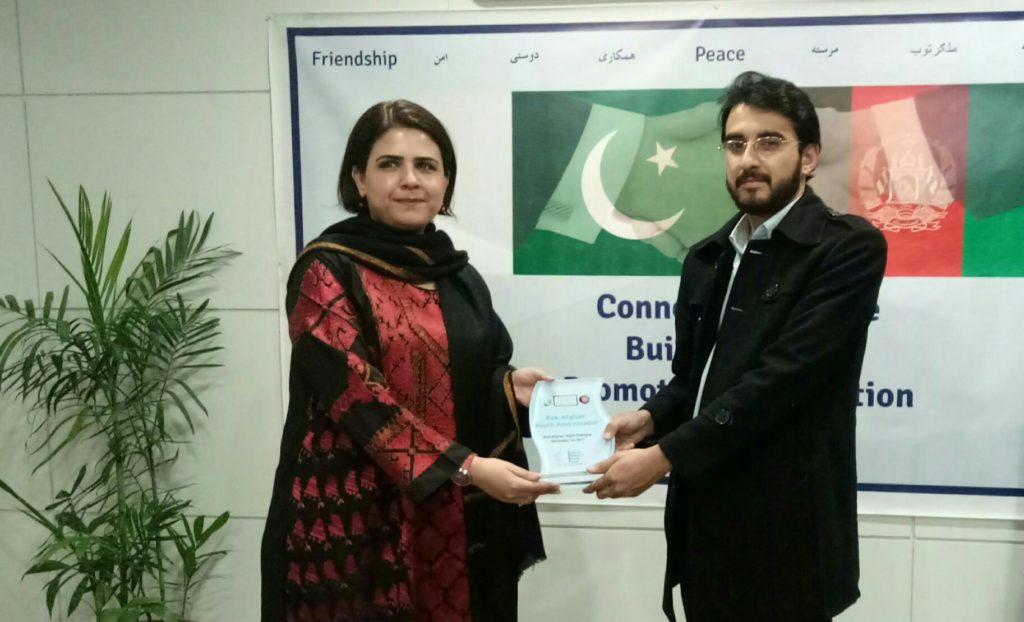
© Center for Research and Security Studies (CRSS) and Afghan Studies Center (ASC), Islamabad.



